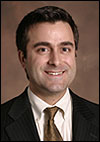. . . to debate the smoking ban issue.
After trying to engage "Bob from the American Lung Association" in some serious debate in the comments secton of
this post, I am at a loss. Cheerleaders don't have to block and tackle; rather than debate, he's quite content to wave his pom poms on the sideline.
Revealing exchange.
*************
Mr. Westover:
The fact that smoking bans cause no significant economic harm has been well documented, most recently by a University of Kentucky study on Lexington, KY. Closer to home, tax data from Duluth establishments that went smokefree some years ago tells a similar story.
So many cities, counties and states (add North Dakota and Montana) have gone smokefree that there are plenty of other positive examples to look to.
I don't think that I'm going to change your mind on this subject, but there may be others who are still seeking the facts on this important public health issue. I encourage them to visit
our website and blog. So the work goes on...
PS: While I believe you are totally wrong on this particular issue, I'll give you kudos for having the best-designed blog in the MOB mob. Easy to read, good use of color and fonts. Good job, Cap't!
Bob from the Lung Association Homepage 04.19.05 - 10:43 am #
--------------------------------------------------------------------------------
Before you can claim "no significant economic harm" you need to define "to whom?"
To simplify, a town has two bars, one smoking, one non-smoking, both doing well, both paying taxes. A smoking ban is implemented.
The formerly smoking bar loses business and shuts down. The non-smoking bar picks up some of the lost business, and given that it no longer has competition, expands its menu, attracts more business from a wider area and contributes more tax dollars that the two restaurants previously did.
No significant harm, according to the aggregate statistics in your studies, because the state is still making its money, but in doing so the state arbitrarily caused an individual business owner significant economic harm.
The economic case is not about keeping up state revenues or even about industry impact. It's about government regulations putting people out of business.
There's my answer to your question, now answer mine -- What are your
neutral criteria for defining a public health issue that requires government intervention?
Craig Westover Homepage 04.19.05 - 2:11 pm #
--------------------------------------------------------------------------------
Your question is more properly asked of a government entity, not to the American Lung Association of Minnesota. We support the ordinances because we know they help protect hospitality workers from the proven risks of secondhand smoke on the job, and that a percentage of adult smokers will likely use the bans as a good reason to quit smoking.
Perhaps someone from the city or county would be willing to answer your question. We are supporting these ordinances for health reasons.
For answeres to legal or political questions, I'm afraid you'll have to look elsewhere.
Bob from the Lung Association Homepage 04.19.05 - 4:06 pm #
--------------------------------------------------------------------------------
I'd say that's ducking the issue; whenever we suport an issue it's a a duty to consider all the consequences, especially when one represents a policy-influencing organization asking for legislation.
Because science is the fulcrum on which you're leveraging your argument, I'd then ask you to read the
Edmund Contoski posts on this site and address the scientific issues -- especially the concept of relative risk as applied to causality.
I trust that as an employee of the American Lung Association, you've read any of the excellent books describing the importance of relative risk in assessing causal relationships in cancer studies, which are unrelated to secondhand smoke and therefore neutral as far as bias on the issue goes.
By those statistical standards, secondhand smoke -- even taking the dubious EPA numbers as fact -- doesn't come close to posing a health hazard.
If you plan to bring up
Helena, you want to explain the commentary from the doctor, a stong proponent of smoking bans, who nonetheless cites a laundry list of reasons why the conclusions drawn from that study are not supported by the study data.
Or are you strictly a policy organization and I must go to a scientist for that answer?
Craig Westover Homepage 04.19.05 - 6:15 pm #
--------------------------------------------------------------------------------
I’ve a busy schedule today, so this will be my last comment on this posting. You are clearly a well-educated man and a very talented writer. While I believe some healthy skepticism of government and ‘organized medicine’ is a good thing, your willingness to dismiss, discount or discredit a mountain of peer-reviewed scientific evidence that shows secondhand smoke is a very real health risk is unfortunate.
I am very comfortable in the consensus of every major medical and health organizations in the world -- including the ALA -- that secondhand smoke is a serious health risk.
I am certain you are aware that the tobacco industry for many years secretly created phony “institutes,” paid for studies, expert spokespersons and testimony to discredit the legitimate scientific studies on the health risks of tobacco. One of the favorite tactics was evoking the old “relative risk” and “dose” gag – if you can’t prove your point, attack the research, the organization, the funding source, anything you can. While many of the pro-smoke scams have been uncovered and are now gone, their “junk science” and tactics are still being used today by the likes of Mr. Contoski. I have read enough of his writings to understand his underlying motive and agenda. He is not the first nor the last to claim that the earth is flat and black is white, and that a vast shadowy conspiracy is suppressing the truth.
I don’t need to cite Helena to make my point. Instead, I point out that Montana just passed a statewide smoking ban. North Dakota is expected to do the same very soon. While the pro-smoke crowd has no lack of zealots to loudly argue for the status quo, America is rapidly becoming a smokefree nation. I look forward to the day when Minnesota joins the growing list of smokefree states.
I’m sure we will continue our spirited debate on this issue in the future. In the meanwhile, stay well and healthy.
Bob from the Lung Association Homepage 04.20.05 - 8:40 am #
--------------------------------------------------------------------------------
"If you can't prove the point, attack the research."
After making that comment, you go on to "attack the research" that says secondhand smoke is not the danger that is claimed, but offer no scientific refutation of Contoski's science. You attack his motives, a non-smoker, non-bar owner with no economic dog in the fight.
Simply stamping your rhetorical feet is not a debate, Bob. You won't set criteria for public health to debate -- that's someone else's job. You won't address statistical validity of neurtral scientific principles applied to the issue -- someone else has done that for you. Just what do you do that keeps your schedule so busy?
No wonder it is confounding to you when people want to think for themselves and make their own decisions.
Craig Westover Homepage 04.20.05 - 9:21 am #
--------------------------------------------------------------------------------









